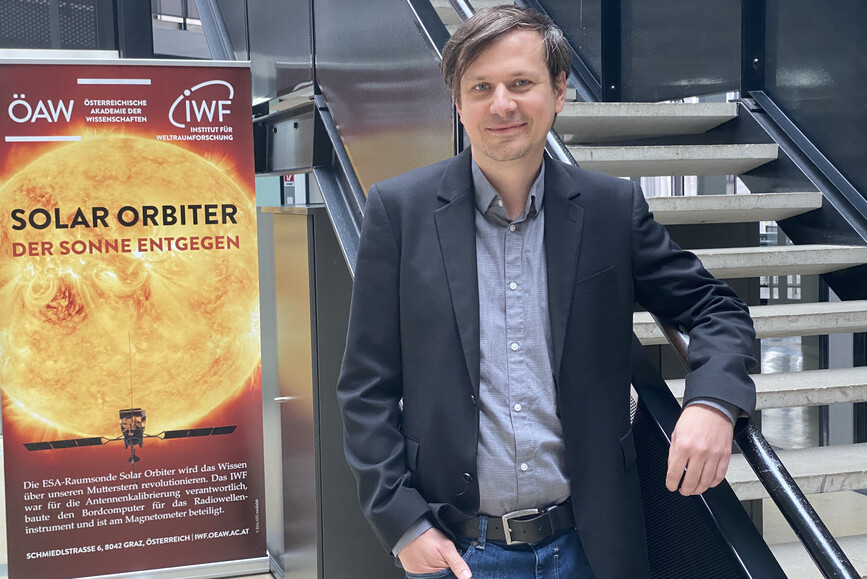ERC Consolidator Grant for IWF researcher Christian Möstl
Christian Möstl, scientific project leader at the Institute of Space Research (IWF) of the Austrian Academy of Sciences, receives a Consolidator Grant of two million euros from the European Research Council (ERC) to further expand his research on the practicable prediction of solar storms with his team.
When it storms in space
With his grant, Christian Möstl will work on the prediction of solar storms in interplanetary and near-Earth space. Just as on Earth, there is constantly changing weather in outer space. The solar wind is a stream of charged particles that carries solar magnetic fields into interplanetary space. These magnetic fields are particularly strong in solar storms, which consist of plasma clouds ejected by the Sun at speeds of millions of kilometres per hour.
Magnetic field in focus
For planets like Earth, which have a magnetic field themselves, the orientation of the magnetic field of a solar storm is crucial. For the storm to transfer energy to the Earth's magnetic field, the magnetic field in the solar storm must point south for a long time. However, the prediction of these southward pointing magnetic fields is still in its infancy and represents an unsolved problem in space research.
I see this funding as a great confirmation of our innovative approach, in which we directly link basic research on the physics of the heliosphere with practical application for better predictions.
Basic research meets applied research
Möstl's project builds a bridge to applied research by developing simulations of solar storms that involve simplified physics but are so fast that they can also be used for real-time predictions. This could make it possible for the first time to better predict these southward-directed magnetic fields. "I see this funding as a great confirmation of our innovative approach, in which we directly link the physics of the heliosphere with the practical application for better predictions," the award winner is pleased to say.
The results of these simulations are also verified with the help of data from the Solar Orbiter, Parker Solar Probe and BepiColombo space probes. The combination of the data from these missions makes it possible for the first time to observe solar storms from several and new perspectives at the same time and thus to better calibrate model calculations. The IMF is involved in the Solar Orbiter and BepiColombo missions with several instruments.
Four ERC grants to ÖAW researchers
In addition to Möstl, three other ÖAW researchers were awarded the high-ranking Consolidator Grant. Emine Fisek, Christian Möstl, Josef Pradler and Yasin Dagdas were awarded high-ranking Consolidator Grants from the European Research Council for their innovative research projects. This brings over 8 million euros in research funding to Austria.

